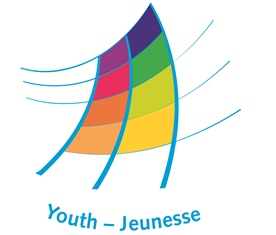Consultative meeting on accessibility
The Youth Department’s project on accessibility
The Council of Europe youth sector is committed to creating fully inclusive, supportive, and accessible environments for young people living with disabilities to actively participate in and fully benefit from the Youth Department's programmes and activities at the European Youth Centres.
Accessibility and inclusiveness, especially for young people living with disabilities, are yet to be fully understood or applied across the whole programme by the Council of Europe Youth Department, and the various stakeholders involved in its activities. To address this, the Youth Department is implementing a dedicated project, Council of Europe Youth Programme - Improving Accessibility and Inclusiveness. This project aims to further enhance the accessibility of the youth programme’s facilities, services, publications, and information, thereby fostering a more inclusive environment for all young people.
The background of the project on accessibility
The Youth Department supports the work of European networks and federations of young people with disabilities, notably through study sessions at the European Youth Centres, co-funding of activities by the European Youth Foundation, and support to youth led civil society organisations working for equality and independent living.
Youth organisations advocating for the rights of young people living with disabilities are regularly represented in the Advisory Council on Youth as part of the Council of Europe’s co-management system, where young people and government representatives decide jointly on the youth sector’s priorities.
The decision of the Joint Council on Youth to appoint a Rapporteur on Mainstreaming Disability Issues to support and monitor developments in this agenda reflects further the commitment of the sector to this issue.
The European Youth Centre, with its two houses in Strasbourg and Budapest, are instruments for the participation of young people in the building of Europe. As venues for activities dedicated to citizenship, human rights education and democratic youth participation, they must be safe and accessible spaces for all young people who want or aspire to take part in their activities. Past renovations in Budapest (2005) and Strasbourg (2008) prioritised accessibility concerns.
Within the Youth Programme of the Council of Europe, efforts to improve accessibility and inclusiveness have resulted in the elaboration of the manual ‘Promoting Accessibility of the Training and Education Programme’ and the revision of the Quality standards of education and training activities of the Council of Europe Youth Department, which now specifically acknowledge the importance of an assessment of access needs in the preparatory phase of each activity.
Ableism, as a challenge to human rights, is also reflected in the Compass, the manual on Human Rights Education with Young People which serves as a resource for educators and trainers and includes practical activities and background information on Disability and Disablism.
The consultative meeting
The consultative meeting took place from 19-21 June 2024 at the European Youth Centre Strasbourg and brought together a mixed ability group of experts, almost all of whom are themselves living with a disability and have lived experience of using and working with the European Youth Centres. This group included representatives of the Youth Sector's statutory bodies and other youth sector stakeholders with real life experience of the accessibility and inclusiveness challenges. The participants discussed how to improve the accessibility and inclusiveness of the youth programme of the Council of Europe, as well as the specific access needs of young people living with disabilities when using the facilities of the European Youth Centres in Strasbourg and Budapest.
Objectives of the consultative meeting
The objectives of the consultative meeting included:
- reflect together on the needs of young people with disabilities or impairments and the barriers and issues they may face when interacting and engaging with the Council of Europe youth sector, be it through participation in activities (including online or hybrid activities), use of publications or the website, or other means,
- make proposals how to ensure fully inclusive, supportive and accessible environments for young people to be able to take a full and active part in the activities of the European Youth Centres,
- identify policy measures and action to further enhance and promote the equal access to rights for young people with disabilities in European youth activities and programmes.
In preparation of the consultative meeting, and as a basis for the discussion which took place there, the project commissioned two independent studies – one on the two buildings of the European Youth Centre and one on the activities in the programme. The conclusions and report from the consultative meeting will form the basis for developing a long-term action plan with practical, achievable and sustainable measures to improve the accessibility and inclusiveness of the Council of Europe Youth Programme.



